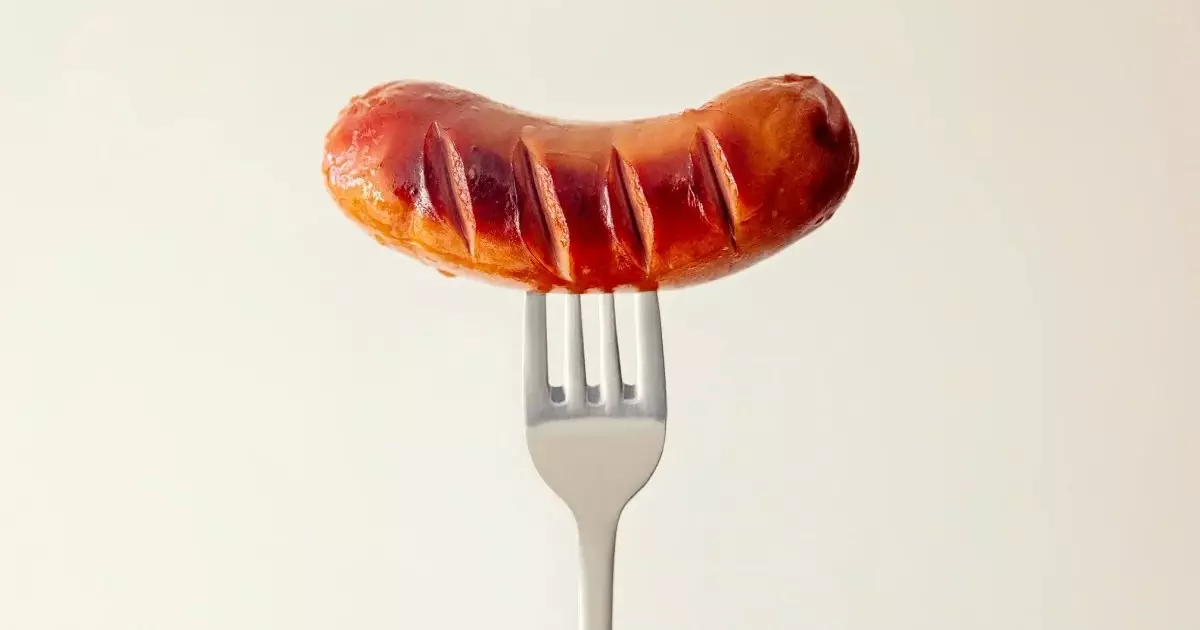The topic of feeding sausages to dogs often comes with a considerable amount of debate among pet owners and veterinarians alike. While the initial impression might be that small quantities pose little danger, the reality is far more complicated. Sausages typically contain high levels of fat and sodium, two attributes that do not sit well with the canine digestive system. This insight offers a crucial opportunity for dog owners to reassess what treats they offer, steering clear of an unhealthy indulgence that could lead to dire health repercussions.
The Dangers of Fat and Sodium
One of the primary concerns with sausages is their fat content. Dogs are not designed to process excessive amounts of fat, which can lead them directly into the vicious cycle of obesity. An overweight dog is not simply a cosmetic issue; it opens the door to a host of medical conditions such as diabetes, joint problems, and even a shortened lifespan. Furthermore, the high sodium levels found in many sausages can wreak havoc on a canine’s system, leading to conditions such as heart disease and high blood pressure. These aren’t just numbers; they are life-altering diagnoses that can affect the quality of life for beloved pets.
The real kicker? Consumption of high-sodium foods can result in salt poisoning—a serious condition that manifests through symptoms like vomiting, excessive thirst, and even more severe neurological issues. This is particularly concerning as many dog owners may not recognize the early signs until it is too late.
Hazardous Ingredients to Watch Out For
Additionally, the risk of toxic ingredients cannot be overstated. Sausages often incorporate garlic and onion powder, both of which are highly toxic to dogs. Even minor exposure could send pets into an emergency situation, with potential long-term damage to their red blood cells. If that weren’t enough, some commercial sausage brands also utilize sulfite preservatives that can lead to vitamin B1 deficiencies in dogs, which can severely affect their overall health.
It’s crucial for dog owners to become vigilant about reading labels. The convenience of sausages should never take precedence over the well-being of a pet. To serve them even a small piece translates into a gamble with their health, a wager that no loving pet owner should take lightly.
What To Do If Your Dog Sneaks a Sausage
If your dog manages to sneak a bite of sausage, the initial response should not be panic, but a composed assessment of the situation. A tiny morsel may not lead to immediate adverse effects, but vigilance is essential. Watch for warning signs such as diarrhea, vomiting, or unusual thirst. If your furry friend consumes a considerable portion, contacting your veterinarian is imperative. They will require information regarding your dog’s size, breed, and any symptoms observed to make a qualified determination about further actions.
Rather than indulging in unwise treats like sausage, dog owners should explore healthier, dog-friendly alternatives. Vegetables like carrots or specific fruits can provide nutrients without the inherent risks that come with processed meats. By prioritizing a balanced diet, owners can ensure that their dogs lead happy and healthy lives free from the daunting complications associated with poor dietary choices.

